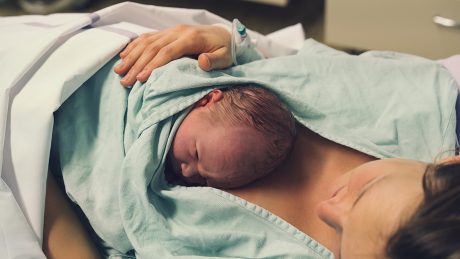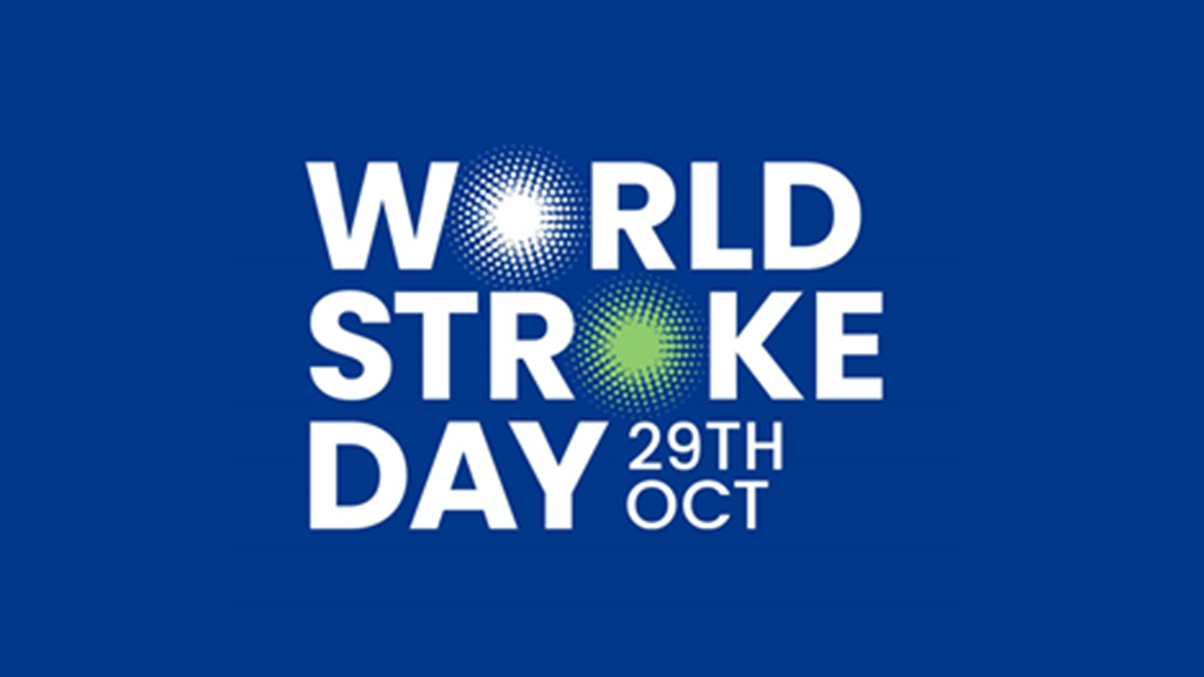An estimated 600,000 ‘lockdown babies’ were born in England during the first year of the Covid-19 pandemic. Babies should undergo five mandatory health visiting checks between birth and the age of two. However, disruption to baby services during the pandemic resulted in some babies having their checks delayed or simply not having them at all.
Secondary paediatric health services were impacted too, resulting in a decrease in referrals and appointments.
Anna Higham wrote an article for the Journal of Personal Injury Lawyers that considers, from a clinical negligence perspective, the position of lockdown babies who have suffered harm either as a result of the omission of their routine checks or through a delay in referral to or appointment with secondary services.
Lockdown babies, the ‘baby blind spot’ and the law
Concerns were raised by charities and individuals working with infants that lockdown babies were existing in a healthcare ‘baby blind spot’ during the pandemic. Support services were withdrawn or suspended at a time when babies, isolated at home and invisible to the world, needed them the most.
Most lockdown babies will be uninjured despite missing essential checks or appointments, and claims cannot be brought for negligence in the absence of injury. But what about lockdown babies who did have a condition that would and should have been detected and treated had they been seen and who have suffered an injury as a result? Will those babies have any recourse, or will they find themselves in a legal ‘baby blind spot’ as well?
The role of health visitors, GPs and community and hospital paediatric services
Health visitors are generally responsible for assessing the growth, development and nutritional needs of infants. They attend babies at home, as well as in baby clinics. One of the early days’ checks performed by a health visitor is for jaundice. Jaundice is common in newborns, but if it does not resolve and babies have high levels of bilirubin in their blood, they can go on to develop kernicterus. This is a rare but serious complication of untreated jaundice, which can cause permanent brain damage. Health visitors also look out for signs of low blood sugar, for example, a lack of interest in feeding, lethargy, low body temperature, floppiness or a blue tint to skin and lips. These could indicate hypoglycaemia. If undetected and untreated, hypoglycaemia can cause cerebral palsy, developmental delay, epilepsy and eyesight problems.
At the six to eight-week check, babies have a thorough physical examination, usually by a GP. This essential assessment aims to detect congenital heart disease, developmental dysplasia of the hip, congenital cataract and undescended testes. Babies also have their weight, length and head circumference measured to ensure they are developing as they should.
Normally, if there are any concerns about a baby, referrals can be made, including to the community paediatric team.
The impact of the pandemic on baby services
From 23 March 2020, baby services were severely restricted. It was not long before research reports were published identifying the risks to babies of leaving them in a ‘baby blind spot’.
The ‘Babies in Lockdown’ report commissioned by the charities Best Beginnings, Home-Start and the Parent-Infant Foundation was published in August 2020. The researchers found that only one in five mothers with a baby under two months old had seen a health visitor face-to-face during the first lockdown. Other reports revealed that 18% of baby services had stopped providing a service to all or most families and 35% were not able to see any families at all in person. On 11 September 2020, the Institute of Health Visitors called for urgent reinstatement of health visiting services as a vital support and safety net for children.
At the start of the first lockdown, the Royal College of General Practitioners (RCGP) issued guidance that the six to eight-week check should continue as a high priority service. Public Health England (PHE) advised that newborn and infant screening should continue as per national pathways. However, as with all services, delays occurred. Recent NSPCC research has revealed that 20% of babies in England in 2020-2021 missed their six to eight-week check.
Paediatric outpatient referrals and appointments decreased as a result of the pandemic, as did elective admissions. A research paper by medics documenting delayed access to care for children reported on neonatologists’ key concerns. These included early hospital discharges after birth due to Covid-19 concerns before feeding had been established, and infants then returning to hospital with feeding difficulties and severe dehydration. In older children, diabetic ketoacidosis and sepsis were reported to be the top two conditions where there had been a delay in diagnosis, resulting in an adverse outcome, including, in some cases, the child’s death. Delayed presentation was considered to be a contributing factor. Another medical report, titled “Where have all the children gone?” concluded: “The real concern is that they remain at home, some of them with very important and serious pathology that can (and needs to) be treated.”
On 9 November 2021, Best Beginnings, Home-Start and the Parent-Infant Foundation published a follow-up report to their ‘Babies in Lockdown’ report titled, “No one wants to see my baby”. Of those surveyed, 28% responded that health visitor appointments are still remote instead of face-to-face. The danger of removing face-to-face visits had been expressed pithily by one senior health visitor in an earlier report: “You can’t spot vulnerability down a telephone line.”
The law
The legal position for lockdown babies wishing to claim for injuries caused by systemic failures to offer routine checks or appointments is not straightforward.
They will have to satisfy three tests:
- The scope of duty test: is there a duty of care to perform mandatory baby checks?
- The breach of duty test: has that duty been breached by a failure to perform such checks?
- The factual causation test: has the baby suffered injury as a result?
The scope of duty test
The law is clear that healthcare professionals do not owe a duty of care to someone who is not their patient. The medic/patient relationship that gives rise to a duty of care usually relies on a degree of ‘positive contact’. For lockdown babies who underwent a telephone assessment or who were referred but then were not seen, such ‘positive contact’ will suffice to create a duty of care. These babies can move on to the next two questions.
But what about the babies left in the ‘baby blind spot’ who remained invisible to healthcare providers? In pre-pandemic clinical negligence cases, defendants have accepted that a duty was engaged to provide services. However, in the post-Covid-19 era of litigation, if a defendant argues that there was no general duty of care to provide services, the dispute will come before the court. The court will then have to ask: “What are the risks of harm to babies against which the law imposes on the defendant a duty to take care?”
The starting point is that there is a statutory duty to perform mandatory baby checks. Although a statutory duty does not automatically give rise to a common law duty of care, judges in previous cases have expressed that a duty will be created when there is something intrinsic to the nature of the statutory function itself that gives rise to an obligation on the defendant to act carefully in exercising that function.
There has always been a special investment in the wellbeing of babies in their vital first 1,001 days; the mission statements of relevant governmental organisations such as PHE underpin this. It is telling that the government chose not to use the Coronavirus Act 2020 to suspend the duty to perform baby checks during the pandemic in the same way that it suspended other NHS statutory responsibilities.
Furthermore, the purpose of the check is to improve outcomes for every child by giving them the best start in life, screening can prevent severe disability or even death, and the very fact of being born entitles every baby to the checks (and local authorities have no discretion on the matter).
Only time will tell whether the above considerations will be sufficient to create a common law duty of care, as and when the point is tested in court.
Another route for invisible lockdown babies, if necessary, would be to ask the court to impose a legal duty by “incremental extension”. This means that where there is already a statutory duty and a plethora of professional obligations and guidance, the imposition of a common law duty is considered to be an incremental step and a way to allow a party injured through a failure to follow such guidance to recover compensation.
Whatever avenue the law travels down in this respect, what is clear is that in the absence of a general duty of care to perform baby checks, those babies left in a healthcare ‘baby blind spot’ would be left in a legal one too, with no cause of action for their injury.
The breach of duty test
The breach of duty principles of clinical negligence law are well-known. Has the organisation or individual acted in accordance with a practice accepted as proper by a responsible body in the same field? Is that practice capable of withstanding logical analysis?
The assessment of breach of duty is based on the knowledge available at the time. As such, the court will have to consider the position health visiting services, GPs and paediatric services were in during the pandemic. If staff had been redeployed to assist with Covid-19 front line care, the ability of organisations to offer a full service would inevitably have been diminished. Decisions would have needed to have been made regarding which assessments to prioritise. However, any decisions made will still need to be considered reasonable and logical.
Furthermore, the court’s assessment of what constitutes a breach of duty of care will not be static. The depletion of services may be considered to have been reasonable during the first lockdown, but less so as the pandemic progressed. Services that blindly maintained the status quo for the duration of the pandemic are likely to be more vulnerable to adverse findings.
The factual causation test
Assuming there was a breach of duty, lockdown babies will then have to prove on the balance of probabilities:
- What examination would have been carried out had the appointment/check/referral been conducted?
- What underlying condition would have been present at the time?
- Would or ought a reasonably competent healthcare professional have detected that condition to a degree that would have resulted in an early referral for treatment and a better outcome?
This will rely on witness and expert evidence. The lockdown baby will bear a heavy evidential burden, especially those invisible lockdown babies who were never seen, so every aspect of their claim is based on hypotheticals.
Conclusion
It will be rare for a lockdown baby to have suffered a serious, life-changing injury due to the withdrawal or depletion of services. However, for one who has, the difference that recovering compensation for the injury would make cannot be understated. Quantum law reports show that:
- a seven-year-old boy received £8,050,335 for brain damage sustained as a result of jaundice in the newborn period that went undetected and untreated
- a baby whose hip was not scanned during her first six weeks settled her claim for £445,000 (RPI £575,000)
- a baby girl whose hypoglycaemia was not picked up and who suffered irreversible brain damage as a result received a global settlement figure of £15,100,000.
The legal adage “hard cases make bad law’” is well known. It is difficult to imagine harder clinical negligence cases than those that the pandemic will engender. With their own claps for the NHS still ringing in their ears, there are likely to be groups of claimants left in Covid-19 blind spots who present claims to the courts. In all likelihood, among them will be the lockdown babies asking, as per the Parent-Infant Foundation’s hashtag, #whataboutus?
Anna’s full article, ‘Lockdown babies, the “baby blind spot” and the law’, can be found here (paywall).
Covid-19 is impacting individuals and companies around the world in an unprecedented way. We have collected insights here to help you navigate the key legal issues you may be facing at this time.
You can find further information regarding our expertise, experience and team on our Clinical Negligence pages.
If you require assistance from our team, please contact us.
Subscribe – In order to receive our news straight to your inbox, subscribe here. Our newsletters are sent no more than once a month.




